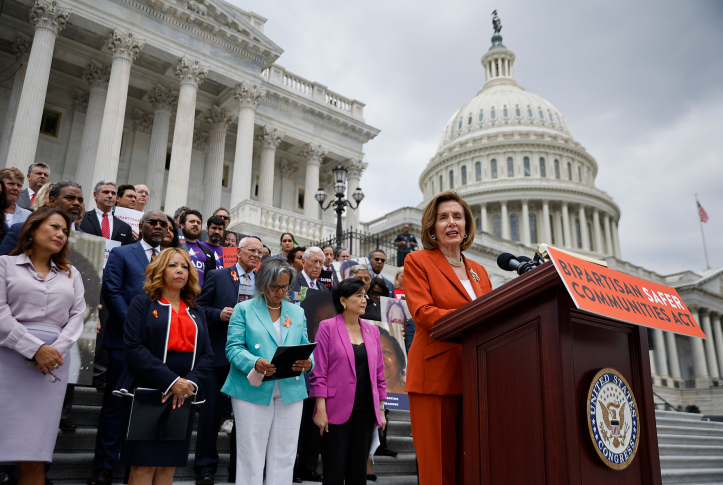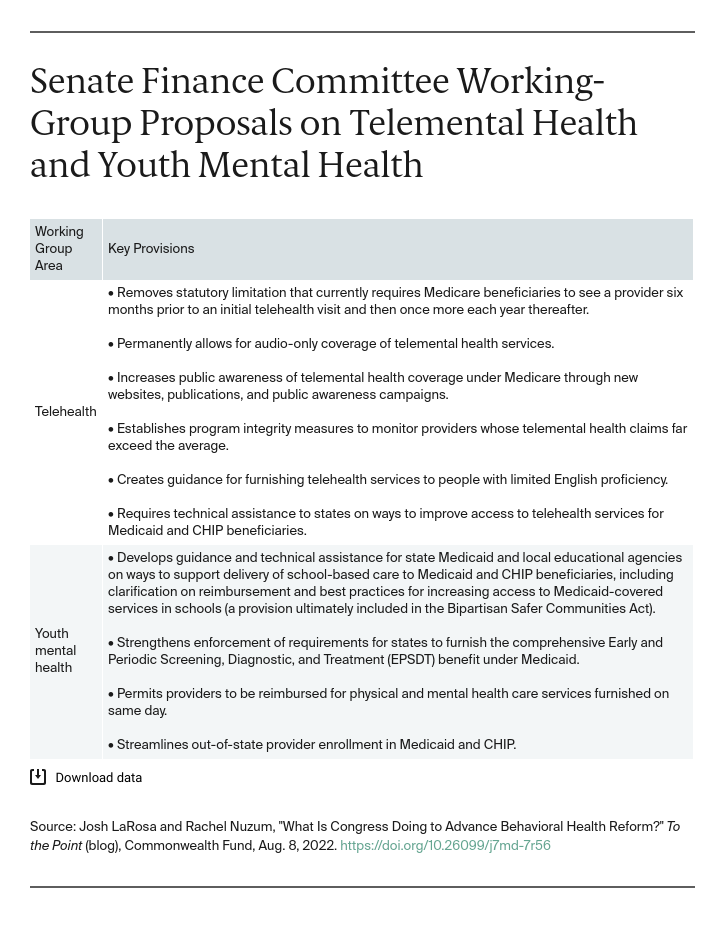In light of the well-documented mental health and substance use crisis and the exacerbating effects of the COVID-19 pandemic, congressional policymakers are considering a range of behavioral health policy reforms.
Recent Progress on Behavioral Health Legislation
Compounding the underlying behavioral health crisis are increasing gun violence and deaths, which have exacerbated stress and trauma for those already at greatest risk. In May 2022 alone, there were two mass shootings: at the Tops supermarket in Buffalo, N.Y., which targeted the Black community and claimed 10 lives, and at Robb Elementary School in Uvalde, Tex., which killed 19 students and two teachers in a heavily Latinx community.
These events spurred the passage of the first gun safety bill in more than 30 years. The Bipartisan Safer Communities Act, signed into law by President Biden on June 25, also included a set of behavioral health reforms, including:
- Investments in mental health treatment and suicide prevention. The new law creates investments for early identification and intervention programs in schools, including $240 million in appropriations for programs that increase awareness of mental health issues among school-aged youth and connect them to needed services.
- Expanding the Certified Community Behavioral Health Clinical (CCBHC) model. The CCBHC model aims to provide comprehensive behavioral health and substance use services through specially designated clinics. It currently operates in 42 states and Guam. The law will expand the model to all states.
- Developing guidance for states. The Centers for Medicare and Medicaid Services will provide guidance to states on how they can increase access to behavioral health services under Medicaid and the Children’s Health Insurance Program (CHIP).
- Pediatric mental health grants. The legislation expands the scope of pediatric mental health care access grants to support the provision of information, consultative support, training, and technical assistance to emergency departments, educational agencies, and schools. It authorizes $31 million annually in fiscal years 2023 through 2027.
Bipartisan Proposals to Reform the Mental Health Care System
The Senate Finance Committee has undertaken a comprehensive, bipartisan approach over the last year to develop legislation addressing mental health in five key areas: telehealth; youth mental health; bolstering the mental health workforce; integrating physical and behavioral health care; and mental health parity. Bipartisan working groups have been charged with developing legislative proposals in each area. The committee deliberations are informed by 550 stakeholder responses to a request for information that was released last year on advancing mental health. To date, two of the working groups have released discussion drafts (see table).



